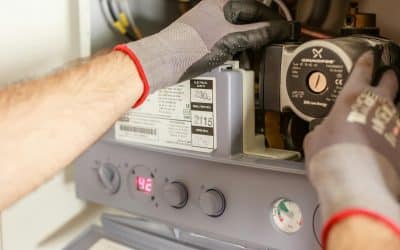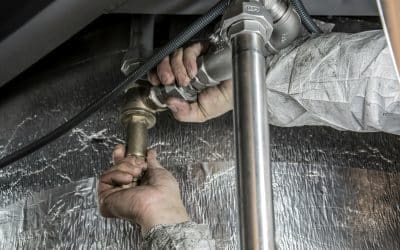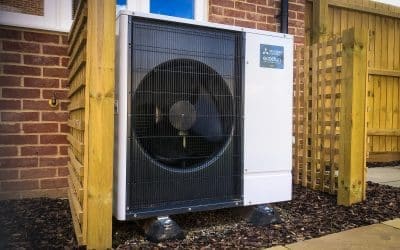With awareness regarding climate change impossible to escape, people are now more concerned than ever about their energy consumption and how they can reduce their carbon footprint.
That said, when it comes to reducing your impact on the environment, a great starting point would be changing the way you heat your home.
Heat pumps have been widely recommended as one of the most eco-friendly renewable technologies, but biomass boilers are equally efficient in helping you reduce your energy consumption. On top of that, both these heating systems can assist in making substantial savings under the domestic RHI scheme.
However, the question is, which of these is the better option for your home?
In this piece, our experts, at JL Philips, have compared biomass boilers and heat pumps to assist you in deciding which one fits your requirements. Moreover, our free quick quote can help us make the decision easier for you!
What is a Biomass Boiler?
A biomass boiler is a heating system that runs on the energy produced by burning wood. These usually come in the form of pellets and chips, which when burnt produce energy that helps the boiler to heat your home and provide hot water.
Since these boilers use wood as their fuel source, they are far more cost-effective than traditional heating systems.
At JL Philips, we offer various types of biomass boilers that can help you save both your energy bills and power consumption. To find out more about them and how you can save and earn with our biomass boiler, click here.
What is a Heat Pump?
A heat pump is an extremely energy efficient renewable technology, but technically its function is the same as biomass boilers – to produce heat to provide hot water.
When it comes to heat pumps, they have the potential to transfer heat from natural renewable sources like the air, and ground to commercial and residential buildings. This absorbed heat is then used to heat your room and water.
Additionally, be it air source or ground source heat pumps, they require only a small amount of electricity and can absorb heat from temperatures as low as -15°C.
Heat Pumps vs Biomass Boilers – Which is the Best Option?
While the heating system you choose needs to fit your lifestyle and home requirements, here we’ve compared heat pumps and biomass boilers based on their core features and benefits.
System Efficiency
When comparing heat pumps and biomass boilers based on their performance level, heat pumps top the charts.
Many older biomass boilers have only 50 to 70% efficiency, meaning 25 to 50% of the total energy generated is being wasted. Compare this to most modern boilers that have efficiency levels of 92% while losing just 8% of energy.
That being said, it’s best to replace your older boiler with a new one to achieve maximum efficiency.
With current technology, no biomass boilers can match a heat pump’s performance. What’s more, the heat pump can have an efficiency level of more than 300% since it consumes just a small amount of energy to generate 3 to 4 times as much heat for your home.
To find out more about the efficiency of these heating systems, you can get in touch with a professional heat pump installation company like JL Philips.
Overall Lifespan
Typically, biomass boilers have an average lifespan of 8 to 12 years, provided regular servicing and maintenance checks are conducted. On the other hand, heat pumps can last for nearly 15 to 25 years, which means you don’t need to fuss over its maintenance as compared to other heating systems.
Here at JL Philips, we offer thorough biomass boiler and heat pump maintenance services to ensure your heating systems are in solid condition.
Space Requirement
In order to install a heat pump, you’ll require some outside space and it’s likely this is where biomass boilers have an advantage.
When it comes to an air source heat pump (ASHP), it can be installed anywhere around the outside of your home thanks to its compact design. However, for a ground source heat pump (GSHP), a depth of 1.2 to 1.8m is required since its pipes are buried in the ground to absorb sufficient low-grade heat.
With biomass boilers, since they are considerably compact in size, you can place them anywhere in your home.
To gain a detailed analysis on which heating system is right for your home, you can get in touch with professional biomass/heat pump installers today!
System Maintenance
While it’s vital to carry out maintenance checks for your biomass boiler at least once a year to maintain its efficiency, heat pumps don’t need to be serviced annually.
Routine preventative maintenance, however, will assist in keeping the system’s core components from being damaged. With regular servicing, you also get to maintain the system’s reliability while reducing the risk of breakdowns and costly repairs.
Heat Pumps vs Biomass Boilers – Impact on Our Environment
The reason why the number of heat pump installations have increased is that they don’t generate carbon emissions while operating, as compared to traditional boilers. They also use very little electricity to operate, making them the most eco-friendly option.
If you’ve been using a traditional boiler, you can consider replacing it with a biomass one since that functions on different types of biomass fuels.
That said, both these heating systems are highly energy-efficient and produce clean energy for every unit of electricity they use. What’s more, installing them can help you make your home eco-friendly.
Heat Pumps vs Biomass Boilers – Which is Better?
A heat pump is an efficient and effective renewable technology, which helps lower your carbon footprint, generates income via domestic RHI, and requires minimal maintenance. They’re an excellent choice if you’re living off the grid and can afford the initial installation costs.
If you’re living on the grid or can’t bear the expenses of a heat pump, a biomass boiler is your best bet in terms of lowering carbon emissions and energy bills.
Ultimately, the choice between a heat pump and biomass boiler needs to be made on the basis of what features you’re looking for, does it fit your home requirements and more importantly, whether it falls within your budget.
Contact JL Philips for Installation and Maintenance Services
Every heating system comes with its own set of pros and cons. A great way to decide which one is the best for your home would be to get in touch with a professional installation company.
If you want to install a heat pump or biomass boiler or find out more about these systems, contact JL Philips today!





